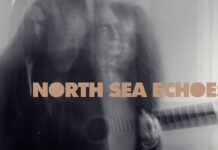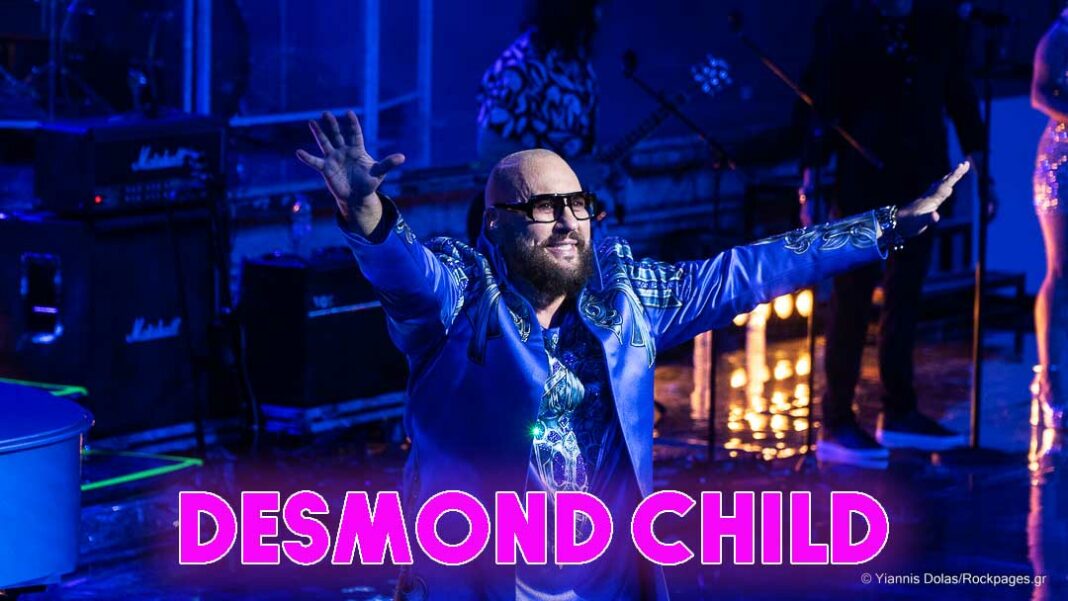
Every interview with Desmond Child is a unique experiment, a magical journey to endless stories, untold tales, information and valuable lessons. This one, which took place in Athens before the publishing of his autobiography, couldn’t be an exception. Unfortunately, this was meant to be a video interview,but the footage was destroyed. Fortunately, the transcription was saved almost intact and that’s what you are about to read below. The thing that you won’t find though is the most important song Desmond has written, according to himself, the one that influenced everything he did after that, because he told us when the camera was turned off! We promise that the next interview with him will start with that question!
Interview: Sakis Nikas, Yiannis Dolas
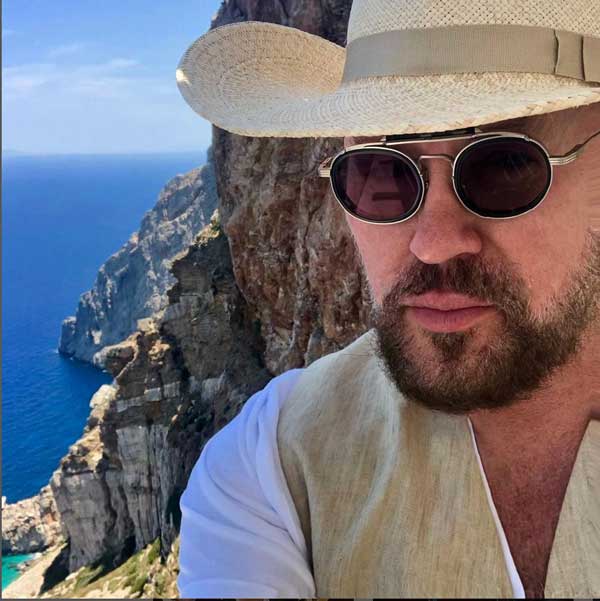
Rockpages.gr: Why did you decide to publish your autobiography now?
Desmond Child: My life has been very interesting. Also, I think it’s been very inspiring, because I came from nothing. My mother was an immigrant that came from Cuba. She barely spoke English. She was a single mother, very, very poor. She worked every kind of job. She was a songwriter. And she was always struggling to try to get somebody to record her songs. And she did. But she never made any money from it. So she always had to work two or three jobs to keep us going. So, that’s why I am the way I am, because I wanted to succeed so I could take care of my mother. And the easiest path for me was to write songs like she writes and that’s that was a big inspiration.
But, my family is very interesting, you know, from Cuba and all the things that happened and her her sisters were gorgeous. And one became, you know, the mistress of one of the dictators and then the other one became the mistress of the other dictator that came after that. And all of that is in my book.
Aside from all that to journey from where I came from, the projects of Liberty City, which are very difficult place to grow up. The great thing about it is that on the swing set, somebody always had a radio and we would listen to the Beatles. And then came Aretha Franklin. And then came the Rolling Stones. You know, one song after the other. It was all mixed. It wasn’t like rock radio, you know, that didn’t exist. And everybody was on the same station. So we got to love every kind of music.
So when I started developing music, all of those influences came through, especially Motown and, of course, rock. And so that that that’s why I think that my path went the way it was, because I read somewhere that the most successful music has some element of soul and R&B in it. And so you can hear that in in Bon Jovi, the songs I co-wrote with them, the bass lines are just right out of Motown.
The book is My Journey, and it’s a journey that took a lifetime, right? And so I have a lot of great stories to tell.
There’s been a quest to be artistic, to be considered an artist, to be an artist. But at the same time, the hustle to try to be successful and make money. So, I am always balancing the hustle with the artistry, because I want to be the best artist and I want to be the biggest songwriter. So those two things sometimes clash, but sometimes that clash makes the explosion that makes it successful.
Rockpages.gr: Obviously, the book is titled “Livin’ On A Prayer”, because of the Bon Jovi song with the same title that you co-wrote with the band…
Desmond Child: The title of the book, “Livin’ On A Prayer – Big Songs, Big Life”, says it all. The book opens with the writing session of “Living On A Prayer”, because to me, that was a very special song. And to this day, it’s been the biggest song that I’ve ever collaborated on. It was one of those things we didn’t know when we were writing the song; that it would last the test of time, that would inspire so many people. In fact, at the beginning, Jon wasn’t thinking the song should go on the record “Slippery When Wet”, because he thought it was too sentimental, maybe too soft. That it wasn’t, you know, rock out, like “You Give Love A Bad Name”, or something like that. Richie and I got on our hands and knees and, like, begged him… “Please, at least record the song”. And when they got in the studio with their producer, Bruce Fairbairn, and their engineer, Bob Rock, in Vancouver… Magic happened!
And that song is just as alive today, as it was then. There isn’t anybody that will just stay on their seat when they listen to that song, especially when it modulates at the end. Their fists go up in the air, right? So, that’s the most beautiful thing.
I’ll tell you a little secret. They always wait for it to be the last song. The very last encore song. Because, no one will leave the stadium without hearing that song. So, it could be midnight and people would be there with their kids, with their little ones, earphones on and all that… sleeping on their shoulders. But, when “Living On A Prayer Comes On”, you can’t even hear the band because everyone’s screaming it out.
And, you know, I think the test of a great band is not the band, but the audience. When you watch an audience come alive you know that band is successful.
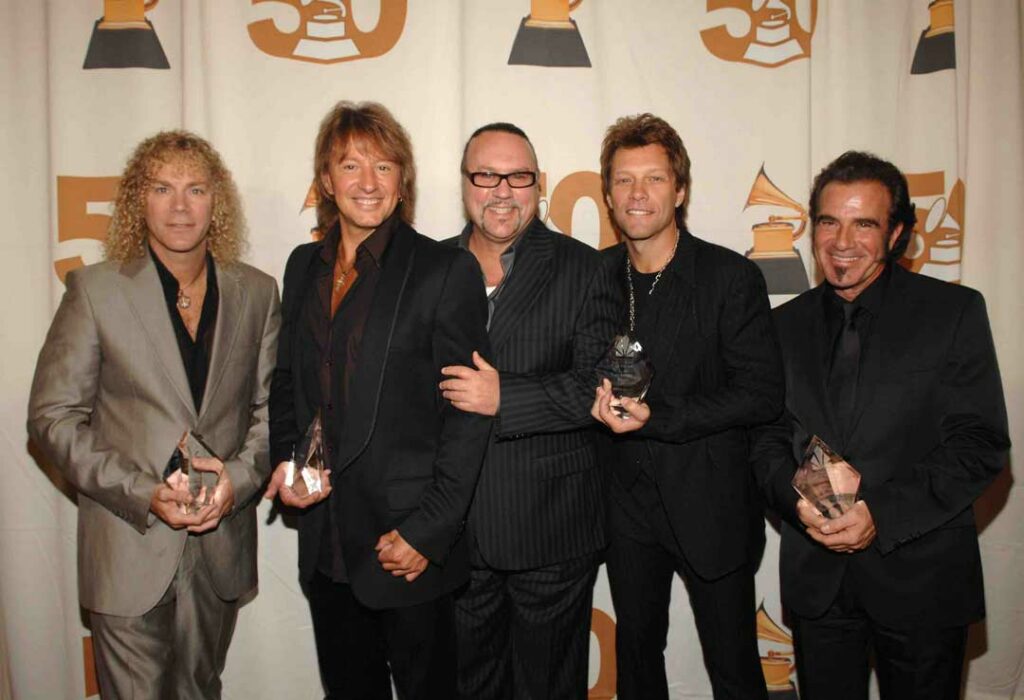
Rockpages.gr: Last summer you played in Athens at the Odeon of Herodes , did you include anything from “Desmond Child Rocks The Parthenon” show?
Desmond Child: Absolutely! I had to delay the book because it was such a momentous event! I had to write a chapter about it. So, the chapter about the concert ends the book… I did “Desmond Child Rocks the Parthenon”. The inspiration was knowing that Parthenon sculptures are crying to come back to Greece. They’re crying… I wanted to do something to help bring awareness and bring energy to the Acropolis Museum, to the country, to the leaders that they should keep negotiating. They should keep trying to bring them back because the Parthenon sculptures is not just one art piece. It’s part of a temple. I call it “a prayer wrapped in marble”. And that prayer is not complete until all the pieces are together. So, I will do everything I can for the rest of my life to help bring awareness to this. And hopefully in my lifetime, I’ll be walking in the Acropolis Museum and seeing the whole collection, you know?
Rockpages.gr: Do you realize that if eventually the Greek marbles reunite and return to Greece we will owe it to you as well?
Desmond Child: That would be a great, you know, to be a part of Greek history. If you’re going to be in history, may as well be part of Greek history, right?
Rockpages.gr: Are you planning to release the concert on CD, or DVD, or both?
Desmond Child: Yes. And that’s going to be on BMG Records, I’m signed there. It’s 27 songs. It’s two and a half hour long, and it’s not a CD, it’s a playlist, really. There’s no CD, because there’s too many songs to fit on a CD. So, people can go to, you know, however they get their music and they’ll see it, but we haven’t released that yet. So hopefully it’ll come out this year along with my book and then next year, or who knows when they’ll be the documentary, but it’s spectacular. We had 12 cameras going on and it’s the lighting. Everything about it… People said they never saw a show at the Herodium that was that elaborate.
Rockpages.gr: Would you consider that concert as one of your proudest moment as an artist?
Desmond Child: I’m not a star myself. I wanted to be a rock and roll star, but it wasn’t in the cards for me. And I guess it turned out better in a way, because I was able to have a beautiful home life and children. And my husband and I are happily married and we’ve been together 33 years. Most rock stars usually don’t last. John is an exception with Dorothea. He’s somebody to look up to. He kept his family together. The idea of the concert is that I get to be a star for one night… One night only. And that was the night. And so some great friends of mine came and we had the beautiful orchestra, 18 women playing the strings. And the band was basically made up of Greek musicians. And I brought my musical director. And so it all came together. We were rehearsing at the Christmas Theater for over a week and we filmed everything. So, eventually there’ll be a documentary, maybe it’ll be my lifetime documentary, but the center is like going towards the Parthenon, towards that night, everything driving towards it.
And then we could, you know, sing a song and then it could go to Joan Jett, and then we’ll hear from her and go back and forth. That’s my dream. So we’re working on it.
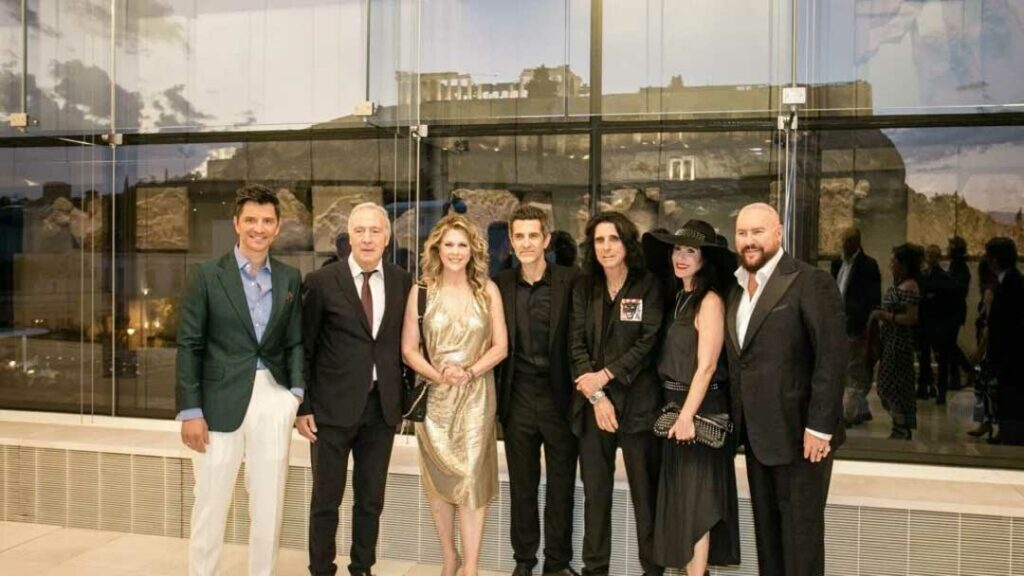
Rockpages.gr: Last summer, while you were in Greece, you also worked with Rasmus on their new album, how did that go?
Desmond Child: It’s the second time we’re making a Rasmus record in Greece. The first one was called “Black Roses”, and we did that one on our second journey in 2005, or something like that. This time we came back to make the next record. And so this time we worked with my co-producer and co-writer, Marti Frederiksen, who had worked a lot with Aerosmith and Buckcherry, Daughtry. He’s a big Daughtry contributor and also Creed, right?
The reason I asked the Rasmus if they would be okay if I had a co-producer was because it’s a lot to do. And the budget… But the schedule is very, very tight to get it done before January. So, I couldn’t do it by myself. All together we had 15 songs of which the band is now going to try them out and see which one feels the best. And so we’ll pick the best ten.
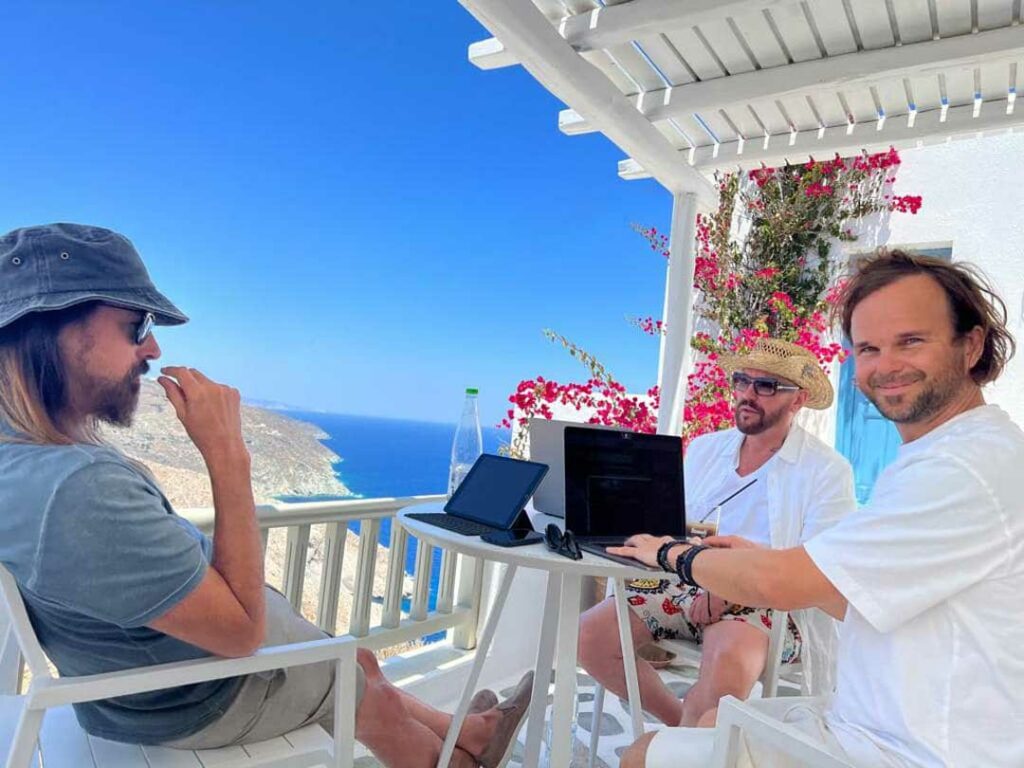
Rockpages.gr: You were once called by Gene Simmons “a song doctor”. Do you agree with that term?
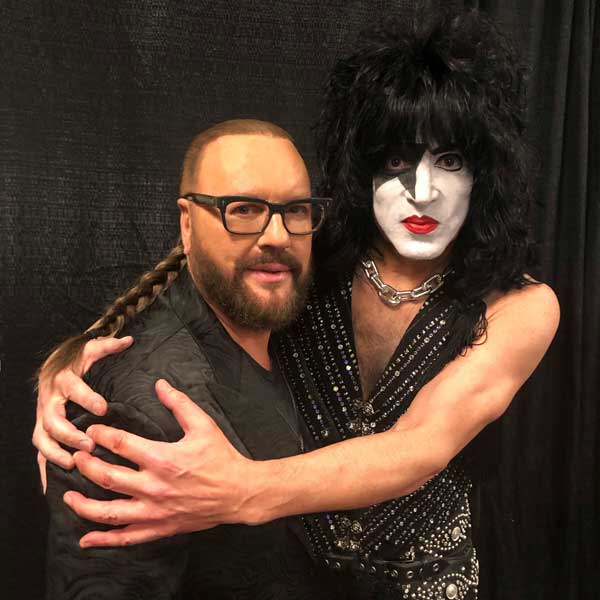
Desmond Child: Gene Simmons called me a song doctor so that he didn’t have to say I was a co-writer! I never doctor a song. I come in with a blank page. I don’t know what’s going to happen. And we collaborate together. On most of the songs, all of the songs I collaborated with Paul Stanley. So maybe, you know, Gene has had his own collaborators, so then they would come together and choose the best of the songs. So they were working double time. We had pretty good success together… “I was Made for Loving You”, “Heaven’s On Fire”, “Uh, All Night”, “You Make Me Rock Hard”, “King Of The Mountain”, “Who Wants To Be Lonely”… I love that song. I think that song’s very profound, you know? And it really wasn’t made for the Kiss Army, let’s just put it that way. But, I think Paul had a need to be more expressive. So that’s how that song came about. I’m just very, very grateful to Paul Stanley because he gave me a chance and because of the song we wrote, our first song, “I Was Made For Loving You”. I’ve been able to have a life because of that song which continues and continues and continues and never stops. And right now it’s the biggest worldwide song of Kiss. Even though Gene never liked the song,
Paul and I were experimenting with, you know, we kind of created a new kind of music, which is dance beats with rock guitar. And after that song, nothing was the same.
Rockpages.gr: Do you feel that you are “the last of a dying breed”, like the last song you wrote with the Rouge?
Desmond Child: I love that. I love that as well. I never thought of it that way. I guess it’s true. We thought of ourselves… Desmond Child of Rouge, like we were kind of a Latinos street gang because we were singing on the streets and all of that. It was like that. We were in New York City and the apartments didn’t have air conditioning, the windows were open, you could hear the traffic… It was a marvelous time to be alive! We have songs called “City in Heat”, “West Side Powwow”, but the great thing is that we’ve stayed very close and we actually are still working together. And if you go to our Instagram, you will see Desmond Child and Rouge there! We live in a timeless bubble and our website also. So, I love that. And we started working on songs and we’ll have a new first single out hopefully in the fall. We just have to get our heads together on how we want to promote it. Desmond Child and Rouge is rocking on!
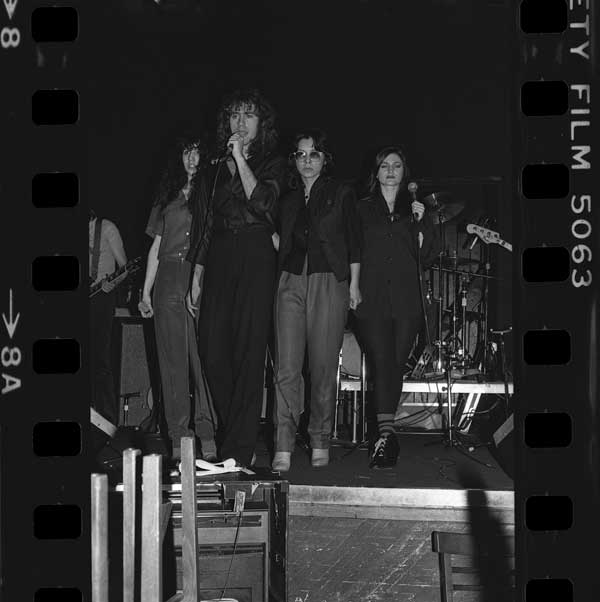
Rockpages.gr: You are a top song-writer with No.1 hits that spread all over 7 decades. Would you say that song writing is a craft that someone can learn, or a gift you are born with?
Desmond Child: Anybody can write a song. I really believe that now. Is that a great song that they’re going to write? That takes some more skill and that takes a lot of time writing a lot of bad songs too, you know! I’ll give you an example. I’ve written say 3000 songs. Of those 3000, maybe half of them got recorded. And out of those, 80 or 90 got in the top 40. Out of those maybe 20 or something were in the top 20. And then, maybe 12 were in the Top 10, and then maybe seven or eight went to No.1. So, it took 3000 songs, and a lot of them bad, to come up with some good ones, that lasted… that stood the test of time.
I think there are a lot of basics that I have to teach people. Once you get clear on those basics, then you’re in a better position to organize your thoughts. Sometimes some student will come with a song that starts out with “she”… “she this”, “she that”… that’s fine. Then, when they get to the chorus they switch to “you”… weren’t you singing about that person and not to the person? That’s rule number one; if you’re going to write about “she”, keep it “she”. If you want write about “you”, then keep it “you”.
So, then all of a sudden the things you say start to make sense, but also you have to learn how to rhyme in clean rhymes. “Love” does not rhyme with “enough”. How many times have we seen “love” be rhymed with “enough”? “Love” has a “V” sound, “enough” has an “F” sound. So, that’s what you call a soft rhyme.
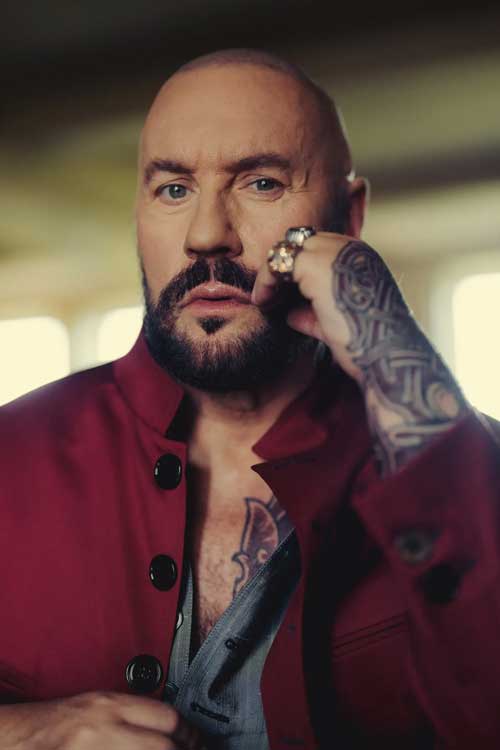
But, “sun” and “gun” is a clean rhyme. So, one of the secrets I learned from my mentor, Bob Crewe, who wrote all the songs for The Four Seasons and many other artists, was that “people can remember a clean rhyme, easier than a soft rhyme”. So, I always try to insist that the choruses have really clean rhymes, so that a whole stadium full of people isn’t searching for the word, the next word to sing along with… They know what it’s going to be, because it rhymes with the line before.
Those are some of the things that I try to impart, but also the amount of time… You know, the 10,000 hours, the outliers, or whatever. It really does take a lot of time to get good at something. And so, I impart that and also how to write not only for yourself, but with someone else in mind. The artist is there. You start asking her some questions and she starts crying about what’s happening in her personal life And I’m like, writing down everything she says and that becomes part of the song. Then, when she goes to sing it, she gets it out of her system, so she gets healed.
When the audience hear her to sing it over and over again, they get that energy. They get healed with their own heartbreak. When an actor gets a part, they usually will get it because maybe something in their soul calls for it. Even if they’re not perfect for the part, they have to go through it. And so if they’re really doing their work, then they will be unlocking something inside of themselves. So, when the audience sees their performance, they get goosebumps, they’re changed, they’re transformed. And that’s what makes great acting.
It’s the same thing with songs when people are telling an authentic story that really has irony and tension of opposites and all of these things that art needs to have. It really is. It’s so much more successful.
Rockpages.gr: What’s left to do in your career?
Desmond Child: I want to make big entertainments, so that’s what’s left for me. It’s one of those things where I used to work nonstop, you know, day and night through the weekends. That’s why when young people come in, I ask them “well, how many songs have you written?” They say, “well, I think I have about 23 songs”. I say, “oh, really? In my lifetime I’ve written over 3000. And I write at least 100 songs a year and I have a life and I’m doing all these other things. What are you doing?
I love to teach and last year I took part at the Rock and Roll Fantasy Camp. David Fish invited me and it was four days, there were 50 students and I got personal time in front of everyone with each writer. They brought their song and I analyzed it, and then they would come back the next day and show us the fixes that they did. I want to do more of that. I just love seeing that young people love rock music. And I read recently that the rock, the classic rock genre is right up there with all the genres. It’s getting huge airplay, you know, it’s different than what they call active rock, you know, or modern rock, that is much less. But, the classic rock songs, they just get bigger and bigger. So that’s okay by me!





